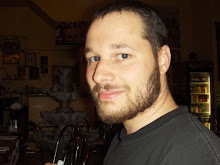A Letter to the Retriever Weekly Regarding "The X-Ray Project"
Dear Retriever Weekly,
I am writing concerning the “X-Ray Project” which has recently been installed in the Commons at the University of Maryland Baltimore County. This work consists of x-rays of victims of suicide bombings taken from Israeli hospitals. While I do not believe in censorship and certainly reject violence against innocent civilians, I object to the content of this exhibit for several reasons. It is utterly devoid of context; it depicts the violence perpetrated by one side in a brutal conflict in total isolation from the ongoing brutalities of the Occupation of Palestinian land. The exhibit ignores the structural injustices and ongoing military actions against civilian targets which breed the types of violence it seeks to condemn. The result is an unbalanced caricature of the conflict, one which serves no higher function than that of partisan propaganda. Whatever high moral feeling is meant to be reflected in the exhibit is vitiated by its selective presentation. By valorizing the suffering of the Israelis exclusively it negates the suffering of the Palestinians. The result is a kind of censorship by omission.
In addition, given the recent Israeli act of aggression against Lebanon it is in extremely bad taste to focus on a hand full of Israeli victims of terror while ignoring the near total destruction by Israel of one of its neighbors. The military actions against Lebanon included the use of cluster bombs, a war crime, which generate carnage on a scale that the wielder of a ‘suicide belt’ could only dream of achieving. The Israeli bombardment of Lebanon frequently targeted areas which were well outside of Hizbullah’s area of influence and served no purpose other than to inspire terror in the civilian population and undermine Lebanon economically. A well known example of the latter is the bombing by the Israeli Defense Force of a Christian farm complex in the North of the country; this farm had won the contract, formerly held by an Israeli company, for providing food to UN Peacekeepers stationed in the south.
This exhibit has a broader context than that of the Israeli/Palestinian conflict. Viewed in the wider context of Post-Colonial studies, it serves to demonize the resistance of the poor and oppressed, often conducted using crude, homemade weaponry, while sanctioning the use of military violence by states. This leads to moral paradox of condemning, rightfully, the death of a handful of innocent civilians at the hand of a resistance fighter while glorying in the destruction of towns and cities full of innocent civilians via aerial bombardment, as was the case in Groznyy, Beirut, and Fallujah. The fact that, more often than not, the suicide terror condemned in the exhibit stems from military actions such as these has been completely disregarded. The fundamental moral flaw, which is the pretense that the modern nation-state has the moral authority to deal out death and destruction as it sees fit, is left unaddressed. The problem of terrorism will never be resolved until the structural injustices which breed it are corrected and the violent proclivities of the nation-state are curtailed. No solution is offered by this exhibit; its sole purpose is to demonize Palestinians so that when Americans hear of the violence directed against them they shrug it off as a just desert.For this reason, I have no choice but to condemn this exhibit as propaganda.
Finally, this exhibit is inherently racist because it exhibits the results of the actions of a handful of Palestinians without calling attention either to the depredations which the Palestinian people daily face as a result of a decades long military occupation or to the fact that is in reality only a handful of Palestinians that are reacting in this way. Imagine, if you will, someone creating an exhibit which consisted of pictures of the Watts Riots and the LA Riots; imagine if these pictures showed only African-Americans engaging in looting and burning and various acts of violence. Would such an exhibit not be racist by the very fact that it excludes the context of ongoing, violent, structural oppression that the African-American population has been forced to experience? Would not the protestations by the exhibit’s creator that she is simply being ‘anti-riot’ be seen for their mendacity? And would not her complaints that her critics are ‘apologists’ for rioting be seen as the worst type of ad hominem attack? For these reasons I cannot remain silent when this type of exhibit is presented for the perusal of the student body. Silence becomes even more unacceptable when the author of the exhibit stigmatizes her critics as apologists for terrorism. I hope that the Retriever will see fit to publish this letter either in the Letters section or as an Op-Ed as a welcome opposing view on this controversial installation.

